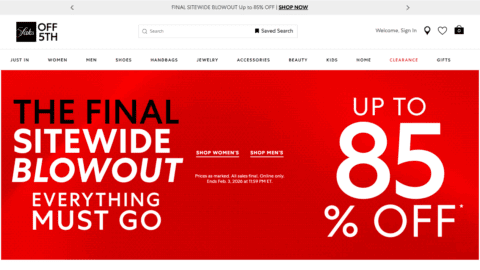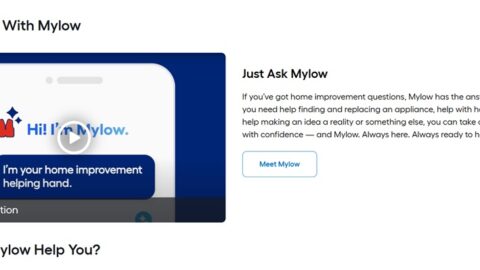Retail industry experts often talk about the benefits of bringing together all customer data in one place, but IT professionals know how difficult that is to actually accomplish. It’s only become more challenging as data sources have multiplied in recent years to encompass different social media networks as well as other customer touch points.
PacSun CIO and IT veteran Shirley Gao turned out to be the right person at the right time to turn this goal into a reality. She recently implemented a solution to unify and organize customer data, including not just online and in-store purchases but also returns and call center activity. She credits a background that’s involved understanding in detail the business side of companies she’s worked for, “how the purchase order is created to how we pay the vendor and how things are received,” she said in an interview with Retail TouchPoints.
In addition to centralizing customer data, Gao, who began her role with PacSun in January 2020, had to deal with the unexpected threat of COVID-19 shortly after joining the company. In 2021, there was also PacSun’s split from former PSEB division Eddie Bauer, which was acquired by SPARC Group, the brand management firm operated by Authentic Brands Group and Simon Property Group.
Retail TouchPoints (RTP): How did your career as an IT executive prepare you to support PacSun as the company’s CIO and lead the brand toward a digital-first approach?
Shirley Gao: My career started with my computer science studies, and then I started as a software developer. I came to the United States to work on the IBM mainframe in traditional software. Then I started working in retail at HomeBase, a former competitor of Home Depot, which closed after 9/11 unfortunately. I then moved to Wet Seal and onto Guess for about 12 years. In that 12 years, my career went from manager to a global CIO. I was responsible for international regions including Europe and Asia.
I think the most important element for successful IT executives is that we need to understand the business from the beginning to the end. Oftentimes, I can proudly say I’m usually the one that knows the whole company’s business, from how the purchase order is created to how we pay the vendor and how things are received. Understanding business really helped me to provide the best long-term solutions.
Then this opportunity with PacSun opened up and this challenge is also interesting. What I didn’t anticipate was COVID — nobody could ever expect that. I joined the company and thought, it’s great to work on the two companies’ integration and create a five-year roadmap to bring the two companies to new technology. I am very proud of the PacSun executives’ ability to grow this business during COVID. I watched so many retailers go down, unfortunately, but PacSun and Eddie Bauer did extremely well.
RTP: When you arrived at PacSun, where was the company in terms of its digital offerings?
Gao: I was hired to manage the company and system integration to create the synergy to lower the costs. I spent about a year and a half working on that. In terms of digital transformation, I will say they had started but weren’t able to do a whole lot; probably 30% or 40% was in the cloud and digitized.
RTP: How did you align PacSun’s heritage as a more than 40-year-old, California-cool surf brand with innovative cutting-edge retail IT?
Gao: Retail constantly evolves, just like technology. Our customers are Gen Z, and they are so unique that they demand the service in the way they want it. They are very mobile-savvy. They are very well engaged on social media and with social media influencers.
I just implemented a new solution to have all the customer data unified and organized so that we have not only the customer’s digital purchase history but the in-store history, the return history, the call center history — everything. We put a 360-degree view of the customer profile and shopping behavior for us to better understand the customer. We can talk to the customer and better engage, recruit and retain the customers.
With AI, another focus this year is — in addition to digital growth and digital transformation — AI-powered business intelligence. We have so much data. We have data everywhere and [the question becomes] how we can leverage AI to unlock opportunities and business insight.
Another area is predictive analytics. For example, how do we better understand our customer needs so that we leverage AI to analyze the customer shopping history by zip code, map it and use a local store as a center for shipping to the customer?
RTP: On that note, since you joined PacSun, how has the company improved its omnichannel strategy, and where do you feel your next steps will lead to cultivate this area of business?
Gao: The No. 1 is still digital growth, to continue to engage with customers. Right now, customer engagement is the No. 1 priority. This doesn’t mean constantly sending marketing emails to the customer or text messages. It’s our values and how we look at the world. On Earth Day, PacSun took a huge initiative and launched a partnership with ThredUP to recycle clothing. Our customers can trade in their used items, and then they are cleaned and we put them on the website as “Previously Loved.” That helps to show how we care about the environment and increase sustainability. That’s part of the new culture of retail. That’s how we engage with our customers.
Secondly, utilizing AI and technology to unlock the business opportunities and then continue into the digital transformation journey. I’m currently doing business continuity planning and disaster recovery planning. I’m getting 70% to 80% this year in terms of digitizing a cloud service system. I’m hoping that within the next two years I can get 95%. I also have initiatives such as utilizing RFID at the checkout. You place your merchandise at the checkout and in half a minute the order total shows up on the screen. You don’t have to scan each one. You just pay and go. It’s so cool. We have that on our roadmap.
Another area is chatbots and AI. This will allow our customers to get service 24/7 without adding headcount to the call center.
Security in two areas is a new challenging focus. One is consumer data protection; the other one is bot management, because I’ve been fighting with bots over the last two years. We have a very popular brand called ESSENTIALS Fear of God. Each launch was international. We have the speed of selling $1 million in 30 minutes. The last couple of months, we got a huge challenge by people utilizing bots to buy for resellers. So that’s a continual battle — to utilize technology in partnership with security companies to manage it.
RTP: Amid PacSun’s split from Eddie Bauer, what were some of the challenges that needed to be addressed?
Gao: After integration, I spent a whole lot of time doing the carve-out, split and TSA (transactional service agreements). I didn’t have any visibility into what contracts I had, vendor relationships and the opportunities we can leverage to transform to a different cloud platform. Especially during the carve-out split — oh, my gosh — we spent a number of nights figuring it out. What were the joint contracts? What were individual contracts? There were work agreements signed by Eddie Bauer, but used by the two companies, and vice versa. That gave us a huge lesson regarding how important digitizing the processes are and the importance of a digital repository.
RTP: What type of solution did you need to alleviate these challenges and position PacSun for success?
Gao: I am looking to digitize the companywide process to provide enhanced automation and streamline the processes so that nobody is looking at different versions, the red lines and the emails. With all the broken pieces, we saw that Icertis offered the solution to put everything together with AI behind it, to provide assistance and continue to improve the AI capability as well.
RTP: What additional back office issues were crucial for you to solve in a post-PSEB business?
Gao: The CIO’s priority is always to grow the business, along with issues such as lowering costs, operational efficiencies and security. But after so many years and after continuing to work on ecommerce marketing ERPs, we cannot underestimate the impact of back office processes companywide, like the contract lifecycle management from the clerks to the CEO. For every department, including supply chain, real estate, IT, product development, contract management and compliance, being able to see the risks and financial impact is so important.
Implementing Icertis as one of the back office, companywide cloud platform and digital solutions will help us to gain visibility from a global view and a single source of the truth companywide. To be able to see the risk is to be able to forecast the financial impact [in order] to avoid the unknowns.













